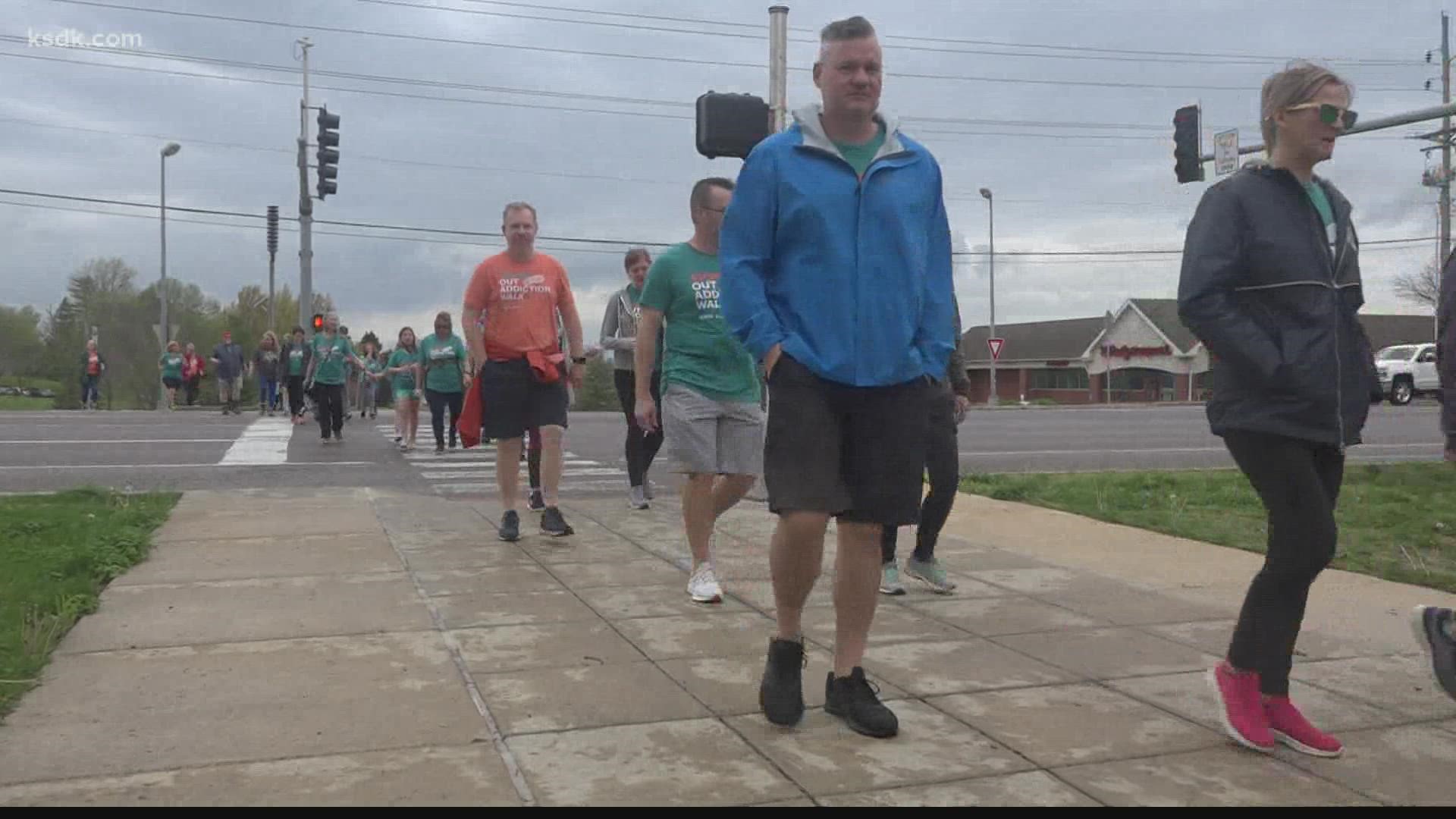ST. LOUIS COUNTY, Mo. — Counselors at PreventEd, a St. Louis-based agency that works to reduce abuse of alcohol and other drugs, said the need for their services has never been greater.
For example, requests for Narcan and fentanyl test strips have multiplied by a factor of four since January.
On Sunday, members of Faith Oakville Lutheran Church in south St. Louis County stepped up and made themselves part of the solution.
Signs lining the parking lot explained how society got to this point. One read, "Alcohol consumption in the U.S. rose 14% compared with before the pandemic."
Members left the comfort of their church to carry a message of recovery out into the community as part of the Stomp Out Addiction Walk.
Bethany Stengel was walking with her mom and two daughters.
"I have a family member who passed away several years ago who, unfortunately, battled alcohol addiction," she said.
Several chemical dependency treatment and mental health service vendors, including the National Alliance on Mental Illness (NAMI), set up booths inside the church to offer information about their organizations.
“Usually someone who is using a substance is trying to get relief from whatever is deeper going on, there. And a lot of that is usually a mental health issue," said Arielle Cole, a program specialist at NAMI.
"I don’t know why, but if you’ve got cancer, people will come up and openly allow you to say you’ve got something going on and allow you to care for them. But with addiction, people sometimes feel like they want to hide it, so we’re just trying to make it okay to talk about it," added Chris Sommer, the executive pastor at Faith Oakville Lutheran Church.
Walkers paid $30 each to participate with proceeds going to PreventEd abuse prevention services.
"We know that any time there are feelings of uncertainly or anxiety, people struggle to cope," said PreventEd executive director Nichole Dawsey. "And that's really what a substance abuse disorder is. It's an inability to cope with pain or loss or feeling insecure about yourself."
Nearly 90% of those with substance abuse disorder are not in treatment, according to PreventEd.

